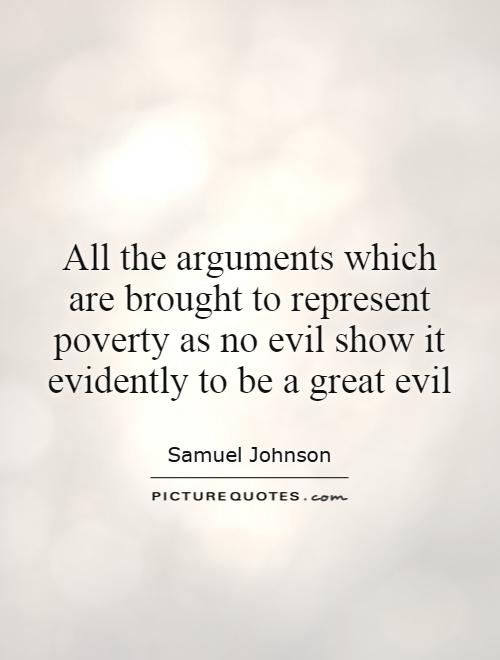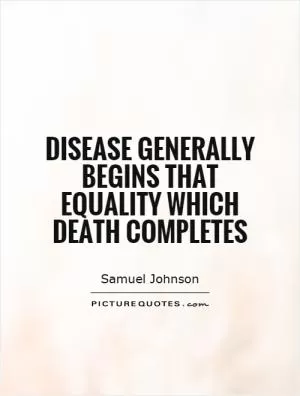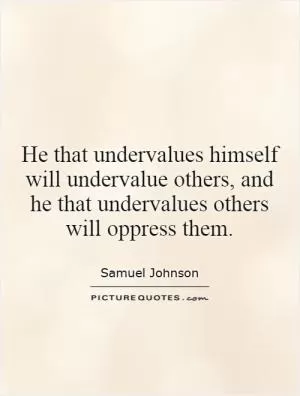All the arguments which are brought to represent poverty as no evil show it evidently to be a great evil

All the arguments which are brought to represent poverty as no evil show it evidently to be a great evil
Samuel Johnson, a renowned English writer and moralist, was a keen observer of human nature and society. In his essay "The Idler," Johnson delves into the topic of poverty and its perceived lack of evil. He argues that despite the arguments put forth to downplay the severity of poverty, it is indeed a great evil that plagues society.Johnson begins by acknowledging the various arguments that attempt to diminish the impact of poverty. Some may argue that poverty builds character, fosters humility, or promotes resourcefulness. However, Johnson refutes these claims by pointing out the harsh realities faced by those living in poverty. He highlights the struggles of individuals who lack basic necessities such as food, shelter, and healthcare. Poverty, in Johnson's eyes, is not merely a character-building exercise but a harsh and unforgiving reality that can lead to suffering and despair.
Furthermore, Johnson argues that poverty is not just a personal affliction but a societal problem. He notes that poverty can lead to social unrest, crime, and instability. When a significant portion of the population is living in poverty, it can create a divide between the haves and the have-nots, leading to resentment and conflict. Johnson emphasizes the importance of addressing poverty as a collective responsibility, rather than dismissing it as a personal failing.
In addition, Johnson highlights the moral implications of poverty. He argues that it is a moral duty to alleviate the suffering of those living in poverty. Society has a responsibility to provide support and assistance to those in need, rather than turning a blind eye to their struggles. Johnson's stance on poverty reflects his deep sense of compassion and empathy for the less fortunate.












 Friendship Quotes
Friendship Quotes Love Quotes
Love Quotes Life Quotes
Life Quotes Funny Quotes
Funny Quotes Motivational Quotes
Motivational Quotes Inspirational Quotes
Inspirational Quotes